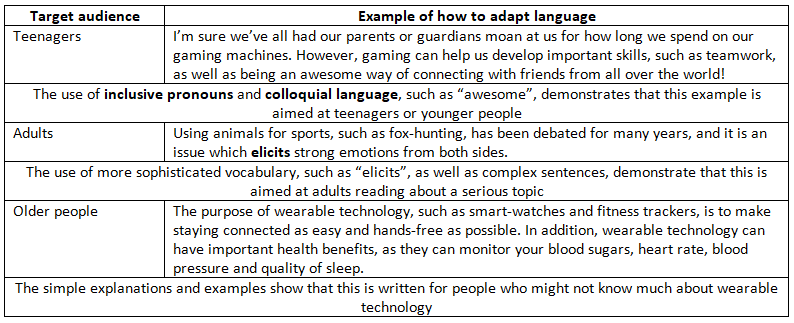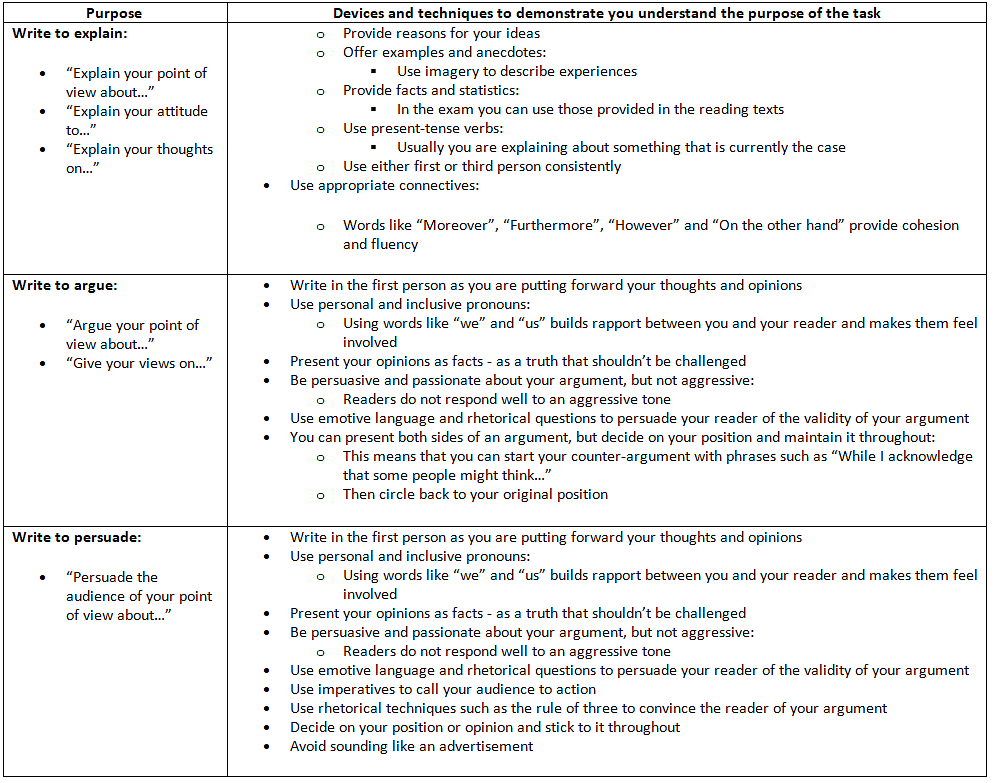Assignment 1: Writing to Discuss, Argue or Persuade | English Language for GCSE/IGCSE - Class 10 PDF Download
| Table of contents |

|
| Introduction |

|
| Overview |

|
| Assignment examples |

|
| Adapting your writing to suit form, audience and purpose |

|
Introduction
Assignment 1 requires students to select and evaluate facts, opinions, and arguments from a given text or texts. They must write in an effective and technically accurate manner, adjusting their style and language to the specific audience and purpose.
The guide for Assignment 1 is divided into the following sections:
- Overview
- Assignment examples
- Adapting your writing to suit form, audience, and purpose
- Top tips
Overview
This task involves creating a written response based on a selected text or texts, approved by your instructor. The evaluation criteria are evenly split between reading and writing.
To achieve top scores, the assessors are seeking the following:
Reading (15 marks)
- Demonstrating adeptness in selecting, compiling, and evaluating information to deliver a nuanced response.
- Successfully evaluating both overt and implied concepts and viewpoints from the selected text(s).
Writing (15 marks)
- Your ability to communicate nuanced meanings effectively through writing.
- Your capacity to employ language skillfully and structure responses thoughtfully.
- Demonstrate a high level of technical proficiency in spelling, grammar, and punctuation.
Depending on the selected reading material, a standard response for Assignment 1 typically involves addressing the author of the chosen text(s) in the format of a letter. However, alternatives such as a speech or an article, enabling the argumentation of ideas, are also acceptable. Regardless of the chosen form, you should offer a comprehensive overview of the overall argument and showcase understanding by analyzing specific concepts posited by the author(s) of the text(s). This entails elucidating intriguing ideas, presenting arguments either for or against them, scrutinizing inconsistencies, and acknowledging any biases present.
A copy of all texts used for Assignment 1 must be included in your portfolio.
Assignment examples
The chosen texts for Assignment 1 should be of moderate length and should not be literary in nature. They should contain abundant ideas and opinions that you can analyze and discuss. Typically, the chosen texts are articles, but they could also be excerpts from speeches or travel literature.
Below are examples of appropriate assignments for this task:
Adapting your writing to suit form, audience and purpose
Your audience in this task will be the individuals for whom your writing is intended. Your evaluation will consider your capability to adjust your language and tone to suit this specific audience.
For example:
- A parent will have different concerns and values compared to a student.
- A local MP would require facts and evidence to be convinced by arguments.
- Readers of a local newspaper are more swayed by emotive language.
- Writing to a headteacher or authority figure demands formal, respectful language.
- Teenagers respond well to personal anecdotes they can relate to.
Directly addressing your audience or reader is an effective strategy to persuade them to align with your perspective. Utilizing inclusive language like "we" and "us," or addressing specific groups such as "fellow students" or "parents," can enhance this technique. While maintaining Standard English is crucial, the appropriate level of formality should be determined by the nature of the task at hand.
For example: It's vital to thoroughly contemplate the task's purpose. "Expressing your opinions" regarding a topic can encompass explaining your viewpoint, advocating your stance, or convincing your audience to endorse your perspective. Crucially, your language and tone must align with both your intended audience and the task's purpose.
It's vital to thoroughly contemplate the task's purpose. "Expressing your opinions" regarding a topic can encompass explaining your viewpoint, advocating your stance, or convincing your audience to endorse your perspective. Crucially, your language and tone must align with both your intended audience and the task's purpose.
Most importantly, ensure that your arguments and perspective are rooted in the reading passages provided. Failing to present a concise summary of the primary points within the texts will result in lower marks.
For more detailed information about writing in the form of a letter, speech or article, please see our Paper 2 revision guides:
- Question 1 Directed Writing: How to Write a Letter
- Question 1 Directed Writing: How to Write a Speech
- Question 1 Directed Writing: How to Write an Article
|
16 videos|45 docs
|














